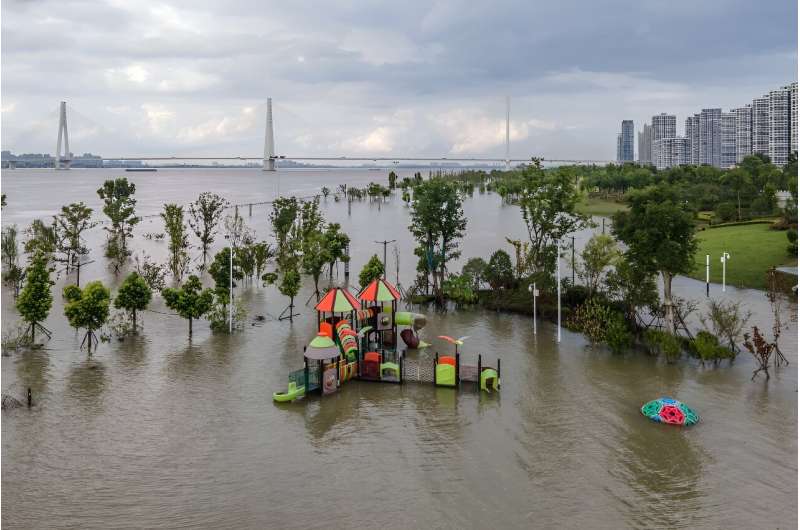This article has been reviewed according to Science X's editorial process and policies. Editors have highlighted the following attributes while ensuring the content's credibility:
fact-checked
peer-reviewed publication
reputable news agency
proofread
Climate change worsened Chinese extreme heat and flooding event in 2020: Study

Man-made global warming exacerbated an incident of extreme flooding and heat in eastern China in 2020, according to a study released Wednesday, which highlighted the need to prepare for increasingly intense episodes of such weather in the country.
Researchers said that warming created by human activity caused an increase in rain that summer by around 6.5 percent, and increased heat by around one degree Celsius (1.8 degrees Fahrenheit).
Record rains fell in June and July around the lower part of the Yangtze River during the monsoon, causing the deaths of more than 100 people and billions of dollars in damage, said the study published in the journal Science Advances.
At the same time, extreme heat hit the south of the country, putting pressure on health care and energy systems, as well as on agriculture and infrastructure.
These simultaneous heat and precipitation phenomena are physically interconnected, and commonly occur at the same time in that part of the world, but in 2020 they were exceptional, the researchers said.
To determine the impact of warming linked to human activity, scientists modeled the weather conditions leading up to and during the events, based on measurements in the real world.
They then constructed a scenario simulating conditions as they might have been without human-caused warming, by adjusting humidity levels, air and ocean temperatures. They finally compared the two models to determine the role of human influence.
The researchers also warned about future weather events, noting that by the end of the century, precipitation in the region could increase by 14 percent compared to 2020, and that the season could be 2.1 degrees Celsius warmer.
The results of the study "underscore the necessity of preparing for more intense spatially compounding flood-heat hazards over eastern China," the researcher said, since they "could lead to increased economic damage and loss of life."
More information: Jun Wang et al, Storyline attribution of human influence on a record-breaking spatially compounding flood-heat event, Science Advances (2023). DOI: 10.1126/sciadv.adi2714
Journal information: Science Advances
© 2023 AFP





















